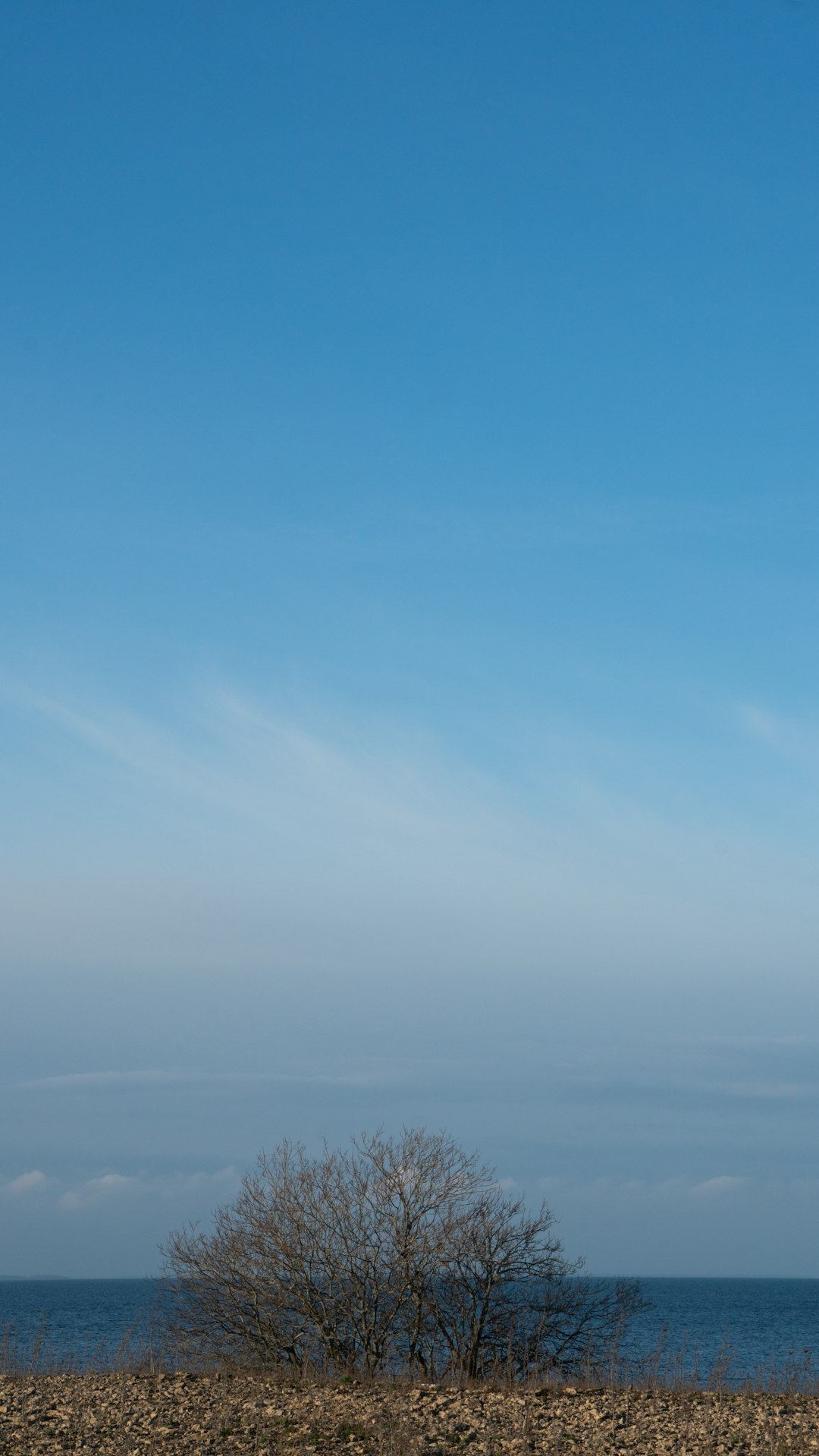The first-ever German adaptation of Erich Maria Remarque's novel All Quiet on the Western Front was filmed in 2021. The Czech crew built a battlefield the size of 2 football fields, and Sirena Film successfully kept to the budget even under unexpectedly difficult pandemic conditions. The result is the cinematic form of one of the most critical accounts of the war, now in the running for the Oscar.
26. September 2022

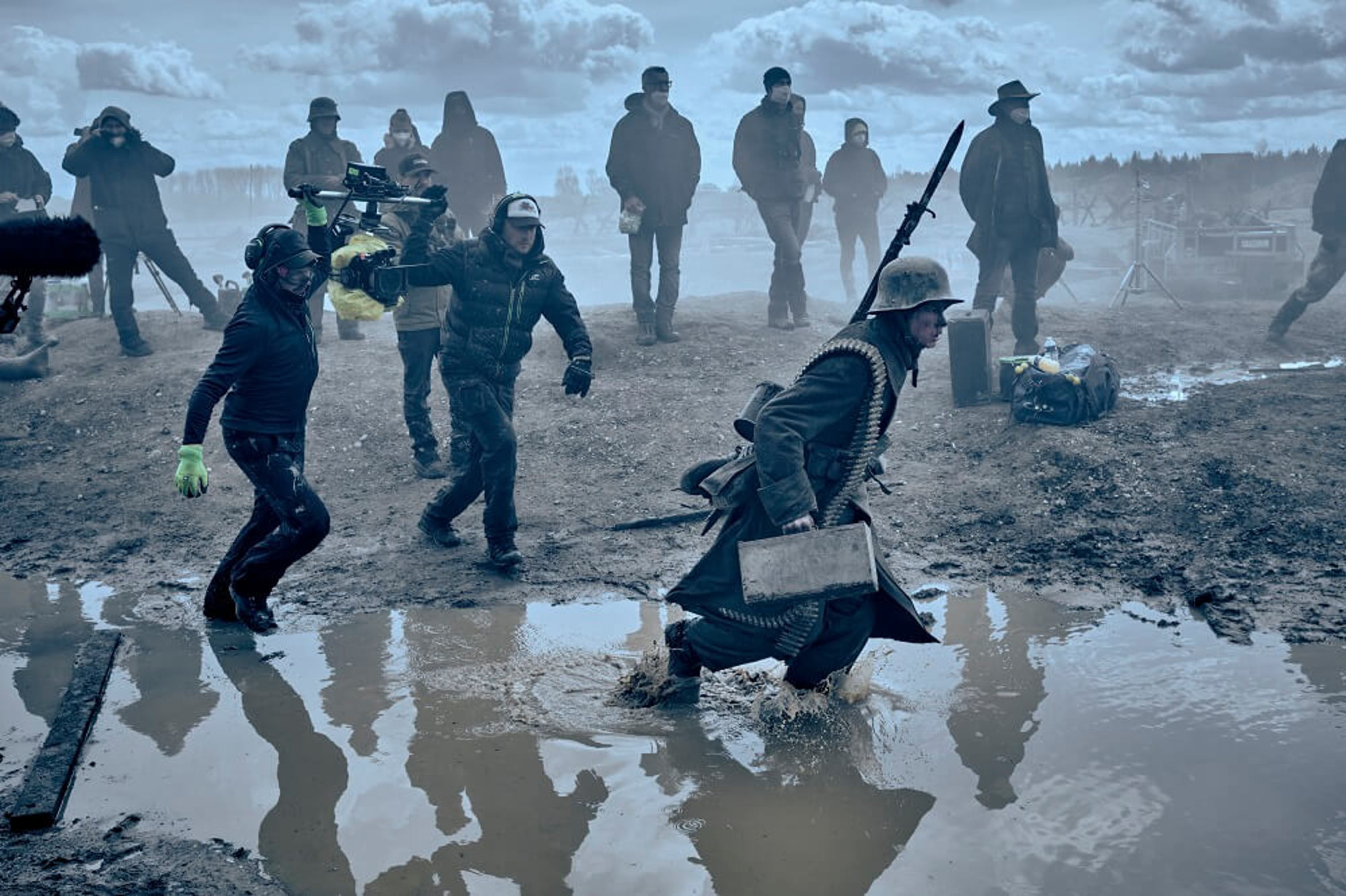
Producer Malte Grunert brings his projects back to the Czech Republic
Germany’s Amusement Park Films followed up on an earlier collaboration with Czech production company Sirena Film and prep started in January 2021.
Malte Grunert explains: "Czech crews are internationally renowned - they’ve worked on so many important projects, so I knew the cooperation would be seamless, and this was confirmed again during our shoot. The director (Edward Berger), the line producer (for the German side, Mark Nolting) and myself were very impressed with our crew, both on set but also during post production."
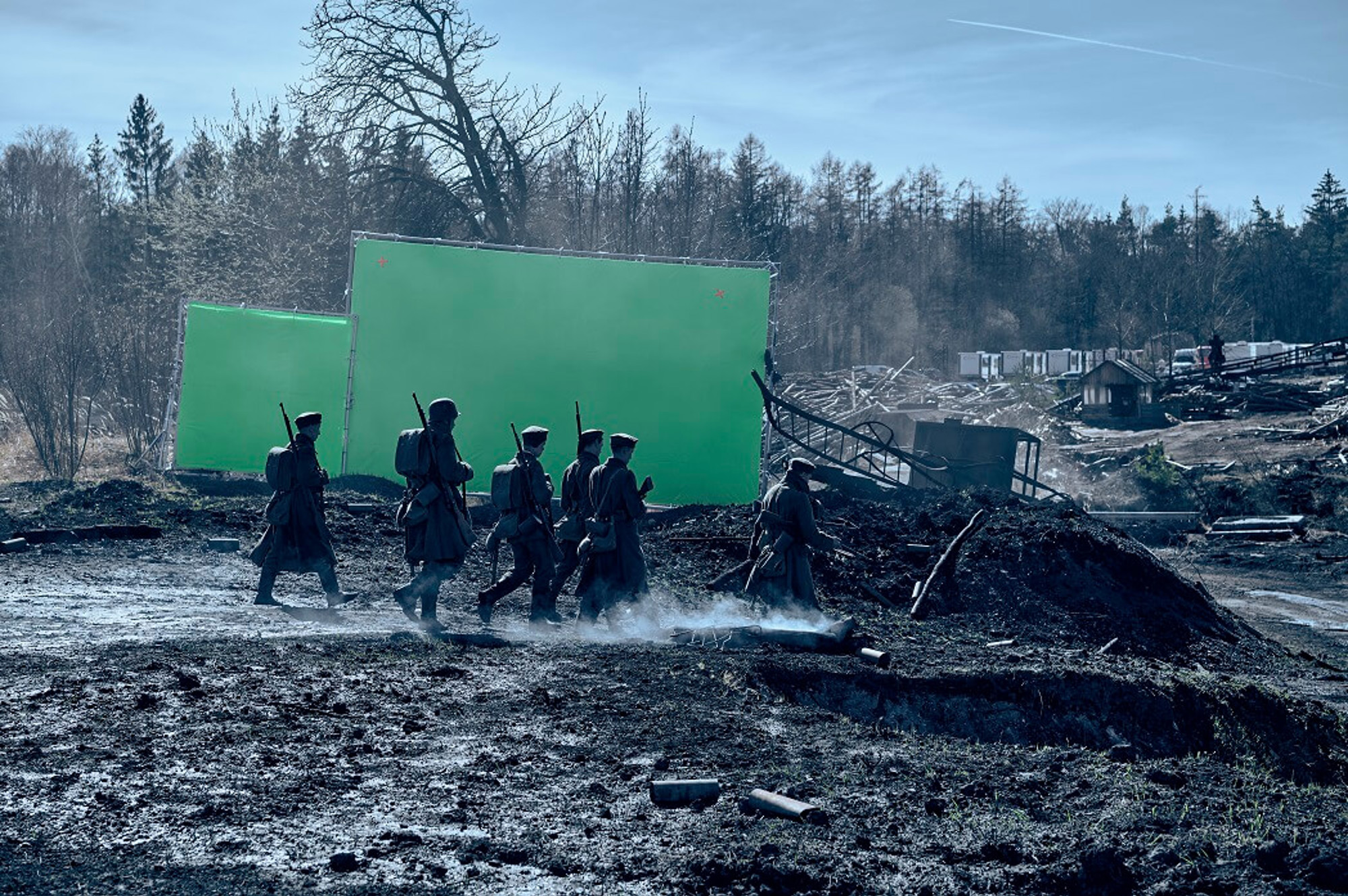
Pavel Müller, the producer from Sirena Film, believes that foreign productions come back to us because of “the professionalism, our reliable, experienced crews, and a large number of contractors in charge of complex projects, with everything supported by a functional production incentives system. The friendly atmosphere is a bonus. The scope of the project brought with it various pitfalls that we had to deal with. However, we managed everything with a cooperative and helpful approach. The collaboration with producer Malte Grunert and line producer Mark Nolting was great, we've worked with both of them before, and I can say we're friends."
Amusement Park Films teamed up with Czech Sirena Film for the first time in 2017, when Malte Grunert co-produced, with Jack Arbuthnott and Ridley Scott, the romantic drama The Aftermath, directed by James Kent and starring Keira Knightly, Jason Clarke and Alexander Skarsgård. In addition to Amusement Park Films, Searchlight Pictures, BBC Film and Scott Free were also involved in the project.
Czech filmmakers in key positions
Quite a few Czech filmmakers worked on the two-and-a-half-hour film All Quiet on the Western Front, many holding key positions as heads of creative departments. The principal sound engineer was Viktor Prasil of Soundsquare, UPP headed by Viktor Müller created complete visual effects, special effects were created by Kamil Jafar and Martin Pryca from Flash Barrandov Special Effects, the stunt coordinator was Marek Svitek from Filmka, casting of extras was handled by Sophie Silhankova from Talent Management. The company Film Makers sourced locations. And we could go on.
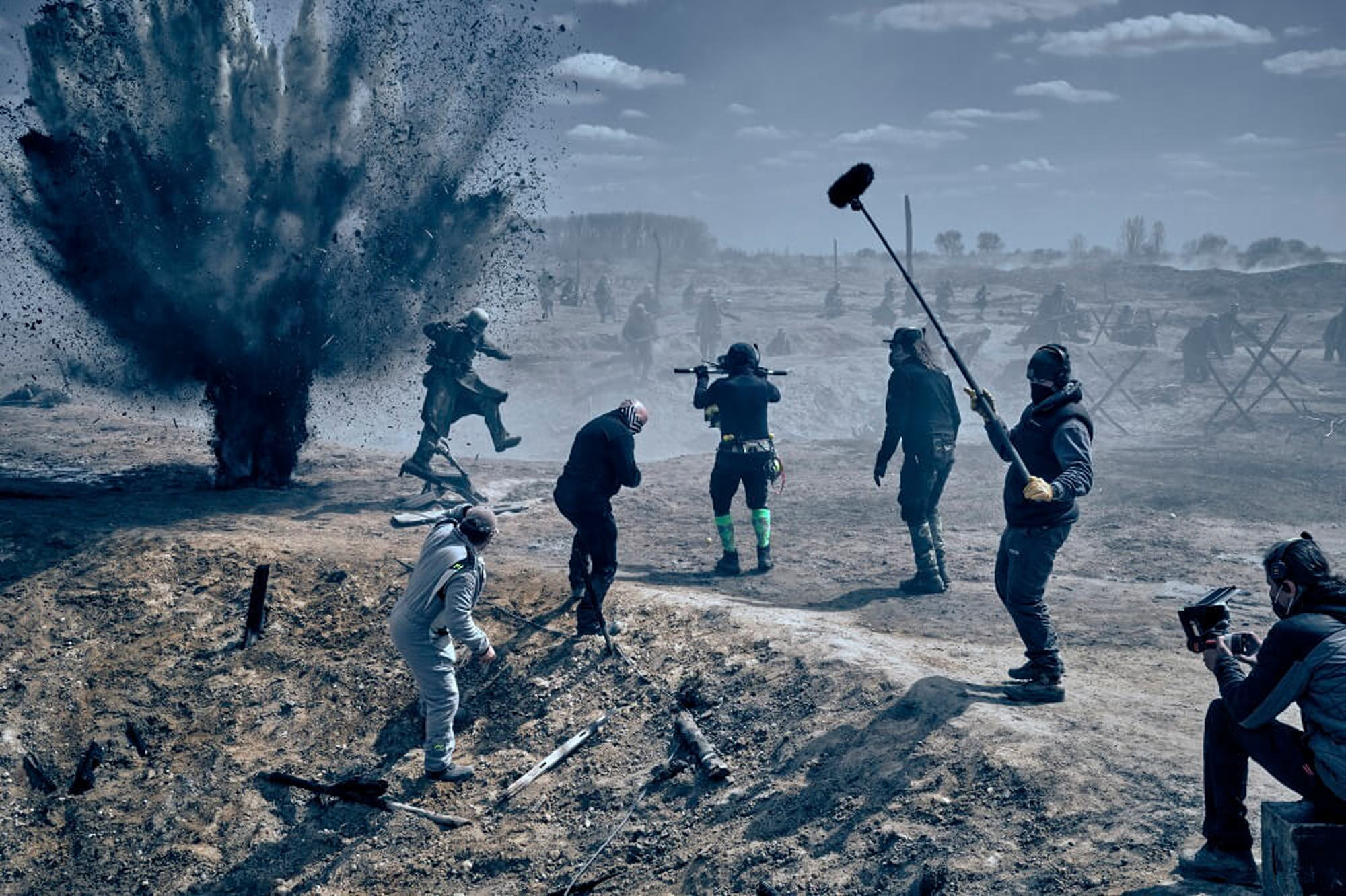
Experience in producing a significant war project
The Czech crew had the opportunity to hone their skills in elaborate special effects involving many explosions and smoke effects, the construction of extensive battlefield sets, challenging stunt scenes, and the coordination of many stunt performers with 300 extras, all under the challenging conditions of strict anti-epidemic measures.
The Hexatron – a telescopic camera crane mounted on a special all-terrain vehicle that allows for complex camera shots in the most inaccessible places – was used multiple times, such as in the trench sets on this shoot.
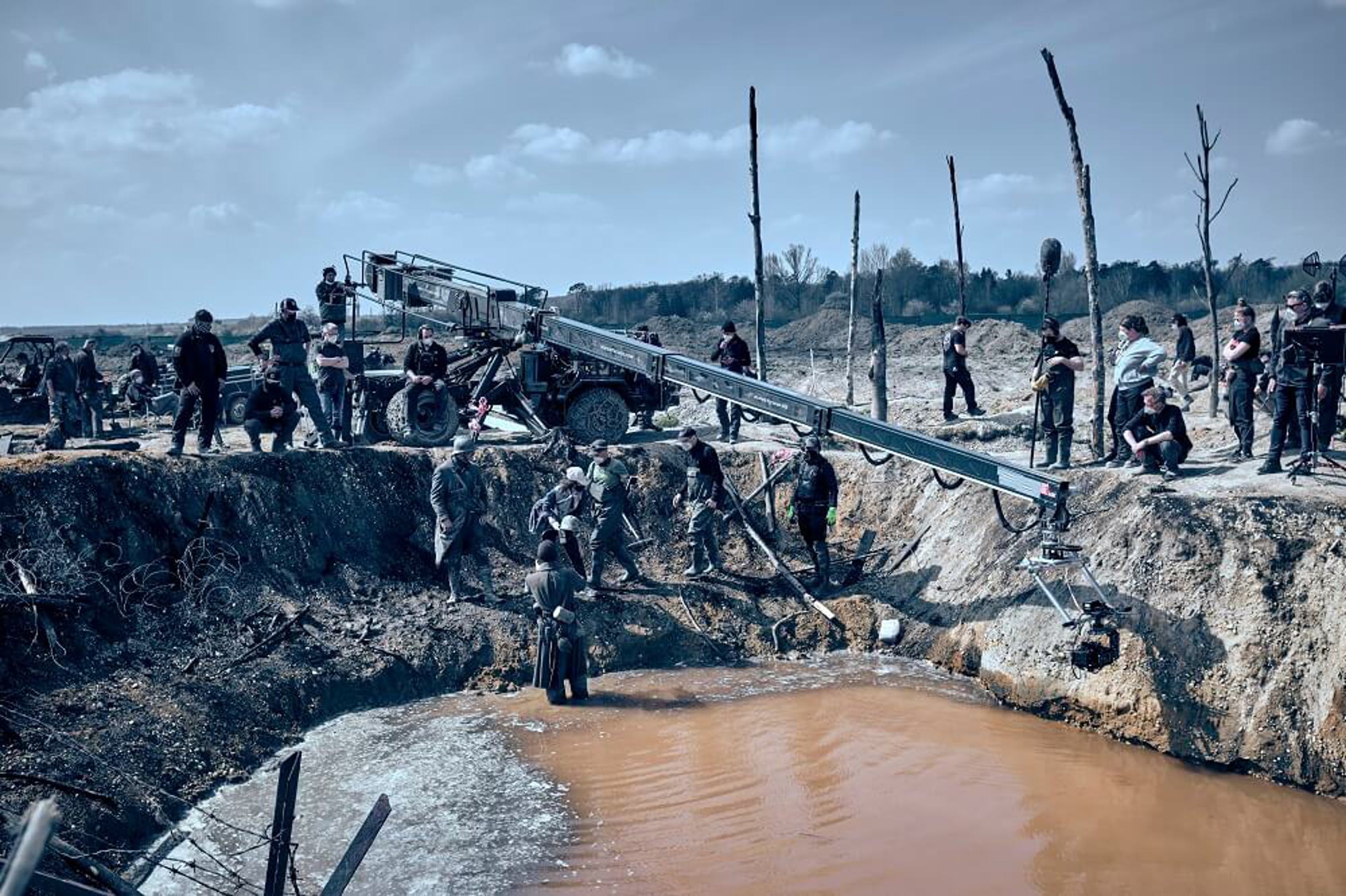
Sirena Film also looked for ways to apply the principles of green filming as much as possible in their daily work, which was particularly challenging in the context of the anti-covid protocol, as food needed to be packaged and individual transport had to be used more.
No budget overruns despite the pandemic
In addition to their creativity and professionalism, another reason why Czech crews have such a good reputation abroad is their ability to stick to the budget. And even in the event of unexpected difficulties, as happened during the realization of All Quiet on the Western Front. Prep work started in early January 2021 during the worst of the pandemic, and filming took place from March to May.
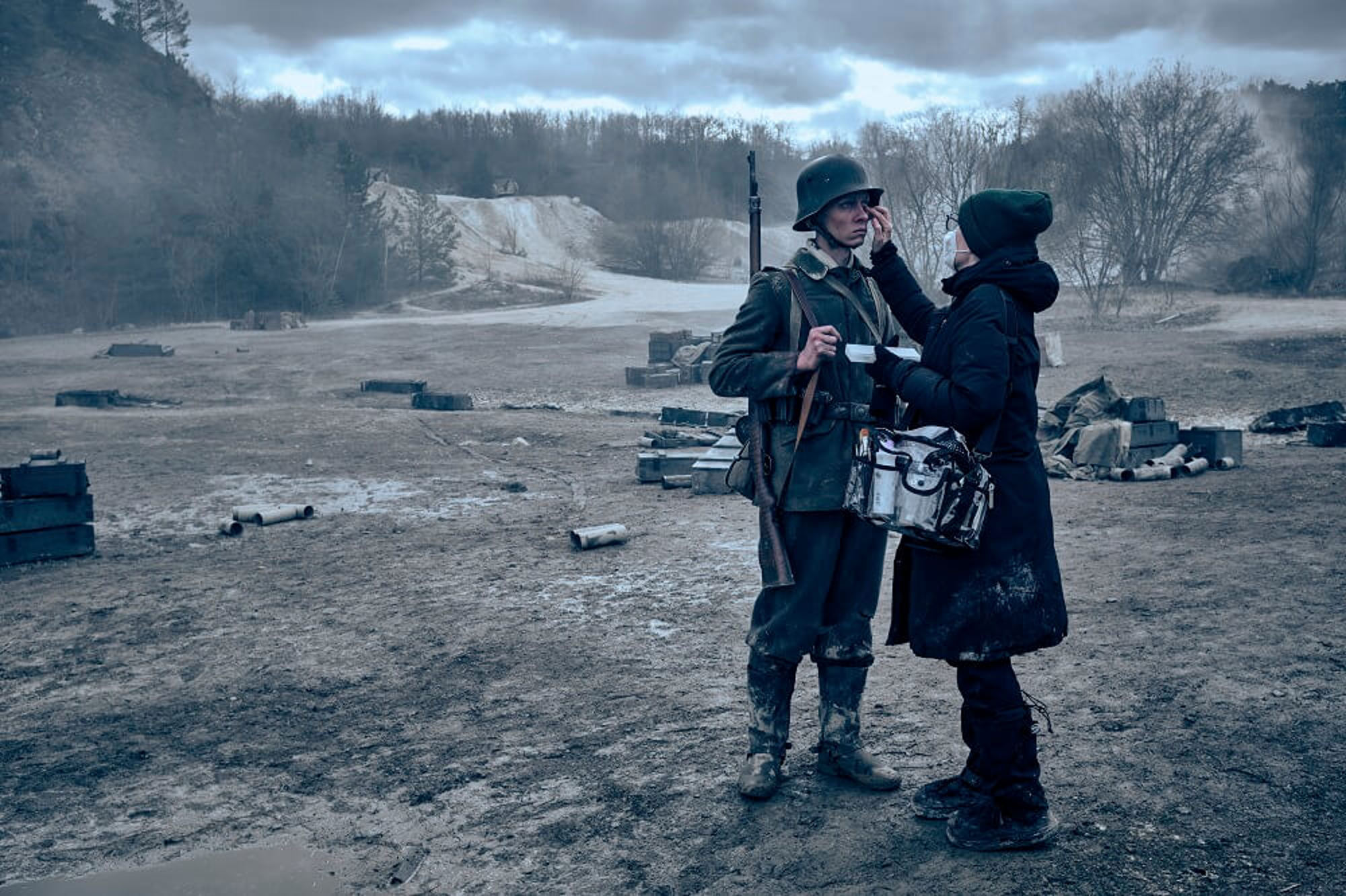
“Despite shooting during the toughest part of the covid pandemic, we stayed on schedule, without delays, and were always able to find a solution that allowed us to stick to the shooting plan,” confirms Pavel Müller.
Several hundred meters of trenches and a battlefield the size of 2 football fields
The extensive project placed extraordinary demands on the set design and props teams. “Because it makes up a large part of the movie, we focused initially on finding places where we could create the battlefield and the trenches,” says production designer Christian M. Goldbeck on the early prep work.
“In Milovice, in the Czech Republic, we found a very good area with good depth in the background. These days it’s a sports airport, which closed its operations temporarily for three months, so we could shoot there. After excessive planning, we started digging in January. In total, we had several hundred metres of trenches and a battlefield the size of two soccer pitches,” Goldbeck says.
Malte Grunert describes the final effect of the scene that the crew worked hard to achieve: “The German and French trenches, the no-man's land in between and the hinterland behind, including the barbed wire, the bomb craters, animal carcasses and the corpses. We built a battlefield. Moving around this battlefield during filming was psychologically testing, challenging and depressing.”
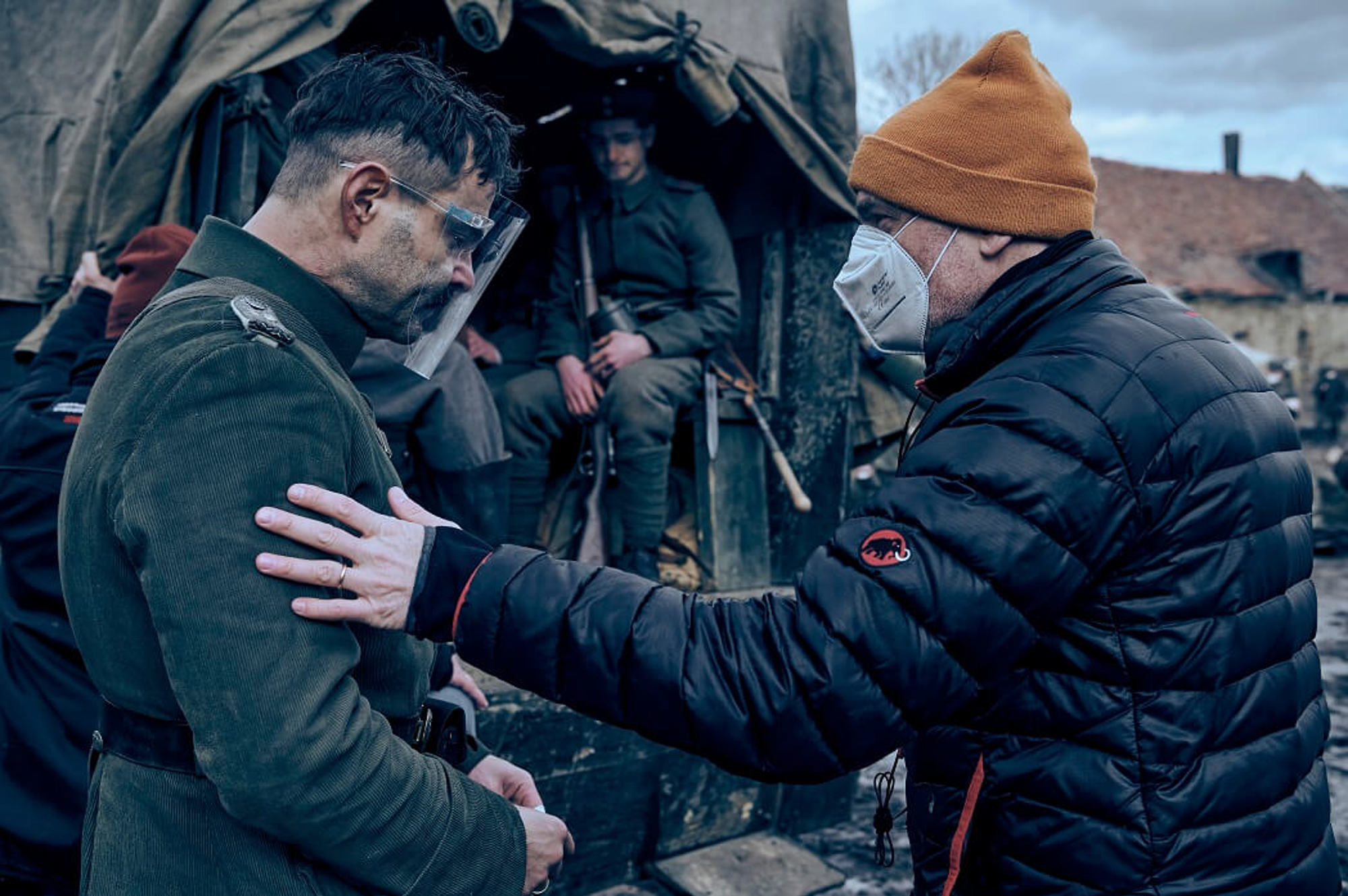
Pavlína Žipková from the Czech Film Commission describes the unforgettable experience of visiting the set: “The crew was filming a closeup scene in a ditch filled with water. It was completely silent, with scorched earth around us, tree stumps, and the bodies of soldiers entangled in barbed wire. We had fallen back a hundred years into trench warfare, even though late April was in the air outside. We found ourselves amid a living monument to a painful chapter in human history. Never in my wildest dreams would I imagine that just a year would pass and several hundred kilometres to the east, similar scenes would take place in real life,” Žipková said, referring to the Russian war occupation of Ukraine.
Locations throughout the Czech Republic and sets in Barrandov Studio
The production found locations for other scenes from the film in the regions of the Czech Republic: Buskovice, Brody, Sychrov Castle, Skupice u Postoloprt, Zatec, Ralsko, Tocnik, Vinarice, Benatky nad Jizerou, Libusin, Chotesov, Cernochov, Lisany near Rakovnik, the Horin and Libechov manor houses, Chotysany, Lustenice, Kraluv Dvur, Roudnice nad Labem, and Prague.
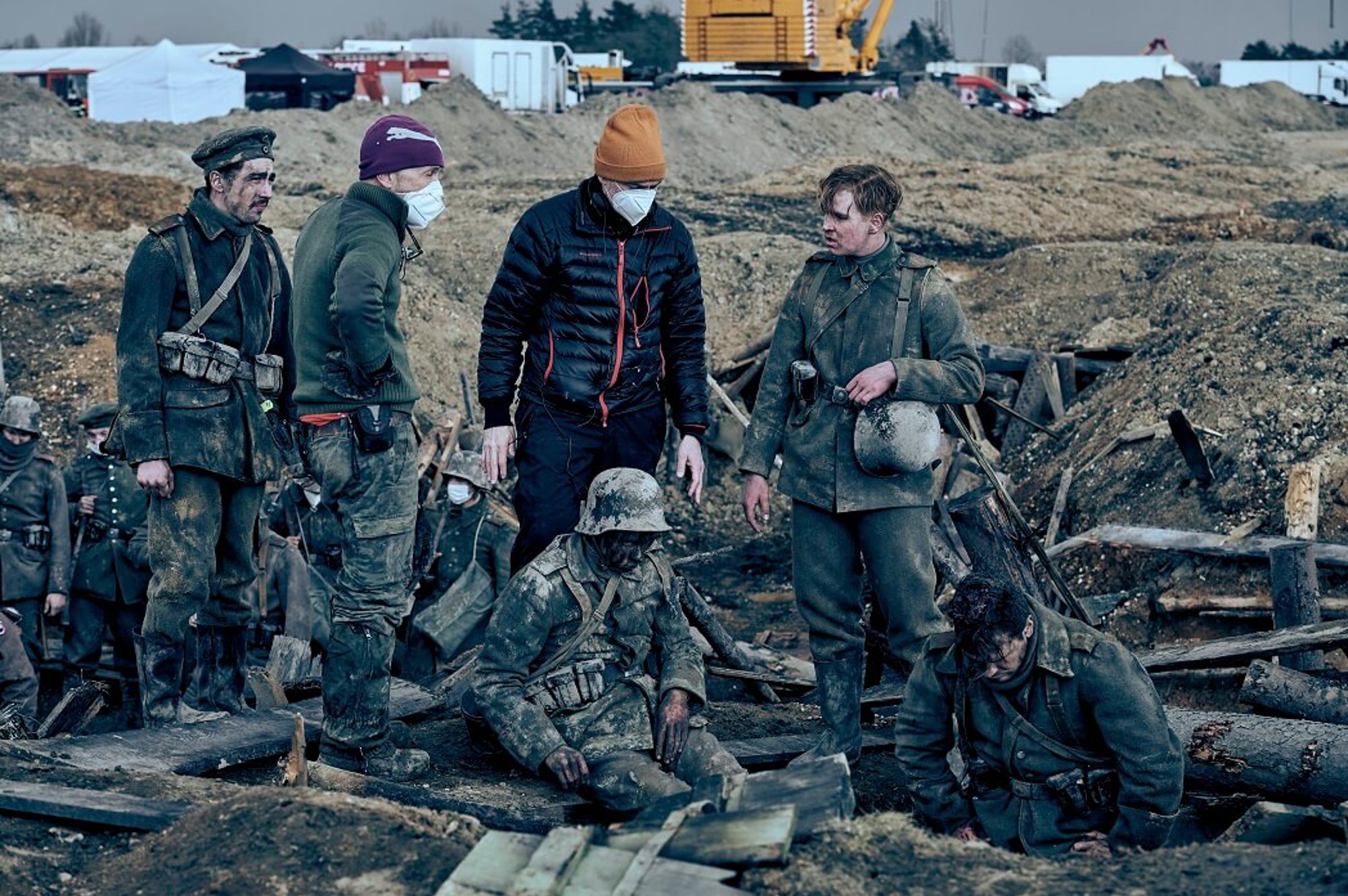
“We created other backdrops in one of Europe's largest and oldest studios, the Barrandov Studio in Prague. Our studio hall was from the 1930s – it was a great honor for me to be able to work there. Here, we recreated several train compartments as well as the lounge car of the Grands Express Européens, built in 1881,” says Christian M. Goldbeck.
The production employed dozens of Czech companies
German Amusement Park Film, which produced the film for Netflix with American Sliding Down Rainbows Entertainment and British Rocket Science, employed dozens of Czech companies to make the film. These included several construction companies for the sets and many other companies providing everything from accommodation, catering, technical support, and a range of other services and goods needed for a film production of this size.
The production company sourced suppliers in the regions where the filming took place. Regional film offices assisted with this and much more. Sirena Film collaborated with “the Central Bohemia Film Office and the Usti Region Film Office – we appreciate their assistance and hope they’ll be proud of the resulting film,” says Pavel Müller. The foreign production spent a total of EUR 17,5 million in the Czech Republic (costs deductible in the production incentives application), of which the production incentives in the form of a refund of deductible costs totals EUR 3,5 million.
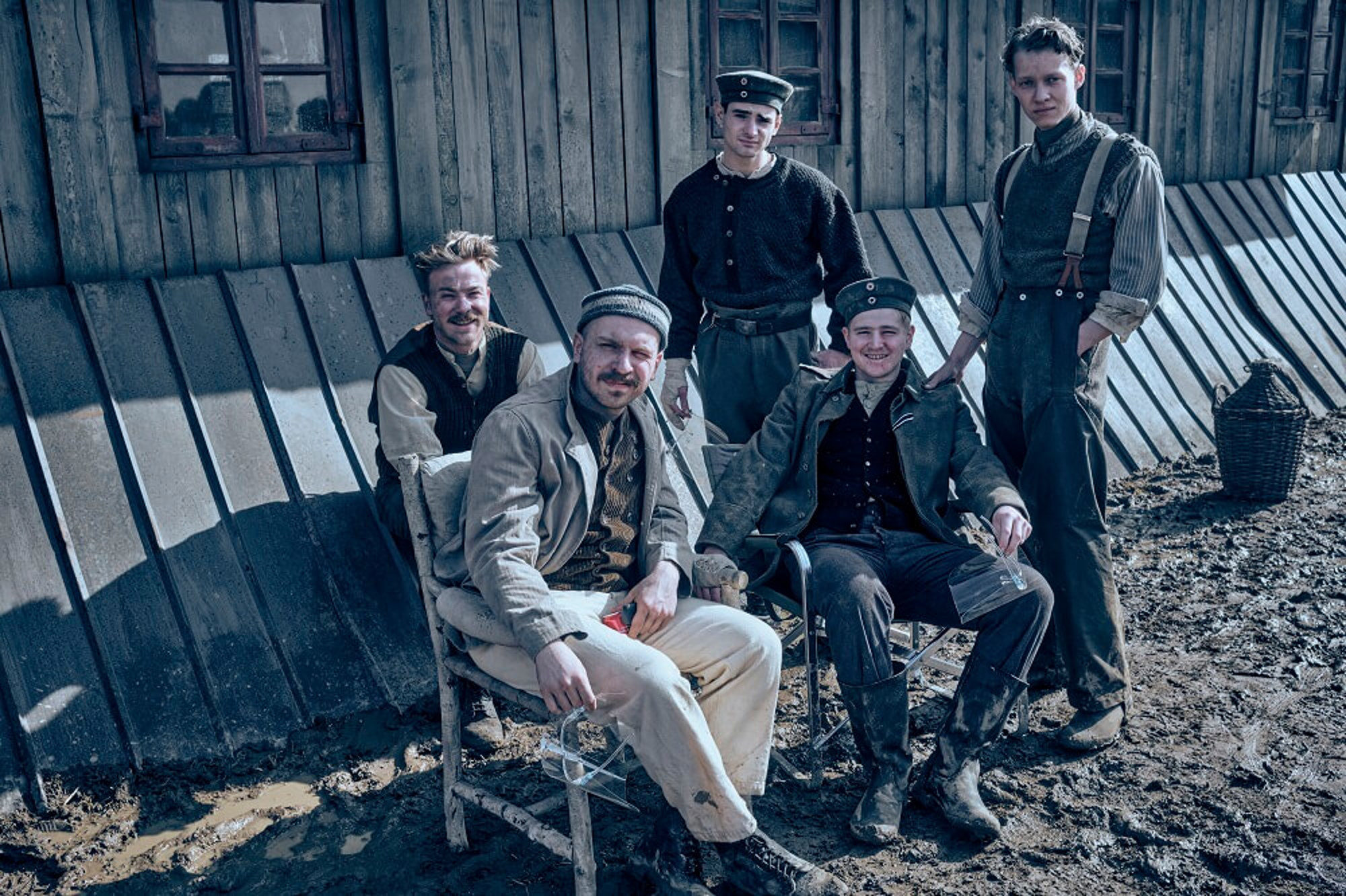
Malte Grunert is satisfied with the result: “We will definitely work again with Sirena Film and are discussing a number of projects we are developing which might be suitable to shoot in the Czech Republic.”
A debutant from Vienna's Burgtheater heads the cast
In his film debut, Felix Kammerer, a member of Vienna’s Burgtheater, stars as Paul Bäumer. Other roles were handled by Albrecht Schuch, Daniel Brühl, Aaron Hilmer, Devid Striesow, Edin Hasanovic, Michael Wittenborn, and Sebastian Hülk.
Czech actors also appear in supporting roles: Cyril Dobry, Jan Milan Horacek, Ales Bilik, Tomas Capek, Emil Rothermel, Nicolas Prokop, Adam Mensdorff, Alzbeta Mala, Andrea Zatloukalova, Tomas Weber, Samuel Neduha, and Martin Nemec.
So how will the 2023 Oscars turn out?
Erich Maria Remarque's novel All Quiet on the Western Front, published in 1928, remains one of the most critical accounts of the realities of war.
Remarque knew this 100 years ago, and his message still rings true today; as Malte Grunert so aptly puts it: "The horror is the same for all parties involved."
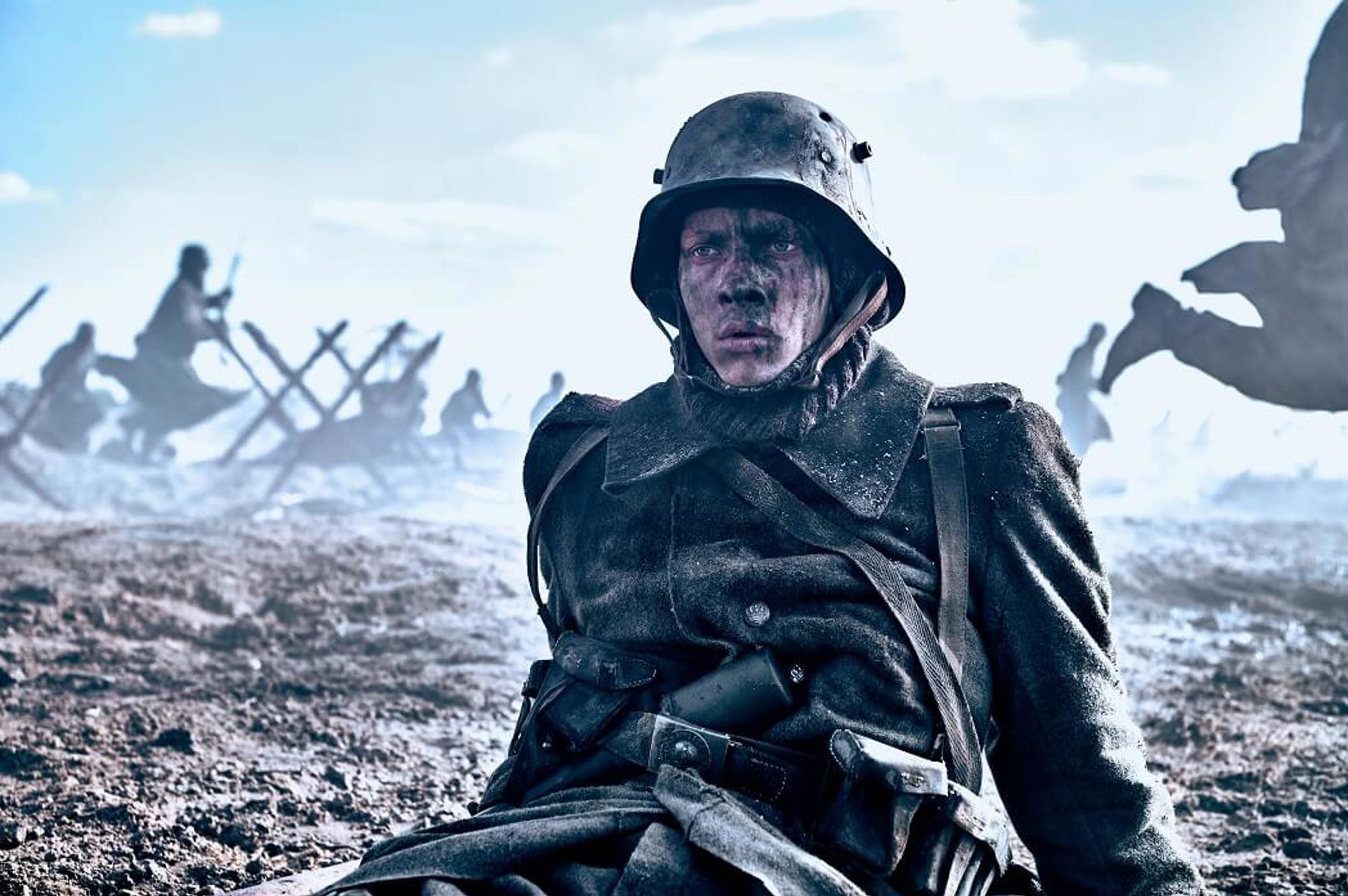
The novel was filmed two years after its publication. Directed by Lewis Milestone, the film received the Oscars for Best Picture and Best Director.
The first-ever German adaptation of All Quiet on the Western Front premiered on 12 September 2022 in the “Special Presentations” section of the Toronto International Film Festival and is the official German nominee for this year's Oscar. The film will premiere in Germany on 29 September and will be available on Netflix from 28 October.
